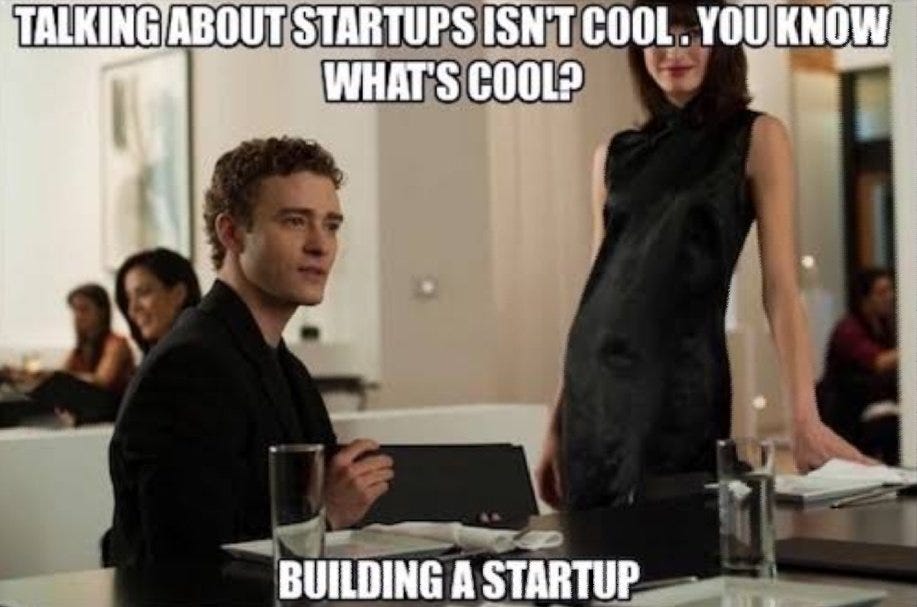#36 Angelinvesting.it - From idea to Series A - Weekly Newsletter
Gratitude and entitlement
3 Minutes to reflect
A friend once told me, "There are two kinds of children: those who thank their parents for what they've been given, and those who expect thanks merely for existing."
I see a parallel with founders. Some believe they're doing you a favor by letting you in on a funding round, while others feel indebted to what investors have provided them.
This thought came to me last week when a founder, trying to legitimize himself, mentioned, "You know, in my previous startup, I raised 8 million." I silently pondered if he was here seeking a pre-seed round of 500k, then not only did he raise those 8 million, but he must've lost them too.
There's no shame in failure. The returns we investors hope for come from the risks entrepreneurs take. However, funding rounds are never a validation of a business nor do they legitimize a founder – even less so if you've subsequently lost those funds.
In a past venture, I lost a million of my investors' money. It's been three years, and it still gives me a lump in my throat when I think about it. I often reflect on what I could've done differently, where I went wrong, and how I could've performed better.
Despite this, I've maintained excellent relationships with most of my investors. They've all seen the effort I put in. But after last week's meeting, a humorous thought crossed my mind: should I start boasting about that lost million? 😆
2 Resources to pro
Did you secure a significant funding round from a renowned VC? You're not suddenly wealthier – the money is in the company's account, not yours. While the value of your shares might increase, until a liquidity event occurs, they're worth little more than the paper they're printed on.
More importantly, a large funding round doesn't change how customers perceive you. Customers have their needs, and what truly matters is whether your solution can address those needs when required and at a price they deem fair.
That's why it's crucial never to confuse cause with effect, or means with the end goal. The objective is to generate profit by serving an ever-growing customer base; finance is merely a tool to build a talented organization.
A slide I consider vital in pitch decks is the one detailing how much a startup aims to raise. From their choice of words and how they structure their response, it's clear if they have a precise understanding of the initiative's goals and the means to achieve them.
For me, the ideal structure looks something like:
"We're seeking to raise <amount you want to raise> to validate <what you want to validate>. We will focus on <2, max 3 core initiatives> to reach <3 objectives, specifically: 1 for user base growth, 1 for customer satisfaction, and 1 related to long tern margins sustainability>.
We aim to reach that metrics in the next 12-18 months. When there we plan to pursue a funding round of <name of the round, round size range, valuation range>. For benchmarking, we've referenced <example startup deal 1 and example startup deal 2>. Preliminary talks seems to confirm these targets with <Next round investor 1 and Next round investor 2 you had a preliminary talk>. Major factor of risk we envision are <1, 2 major risks>
1 Reason to be happy
While I was searching for some startup memes for this newsletter, I came across one that hit me right in the heart. I am not cool 😞
Have a great weekend,
Simone
—
Want to read more: click here
Want to invest with me: click here
Want to share a deck: click here




